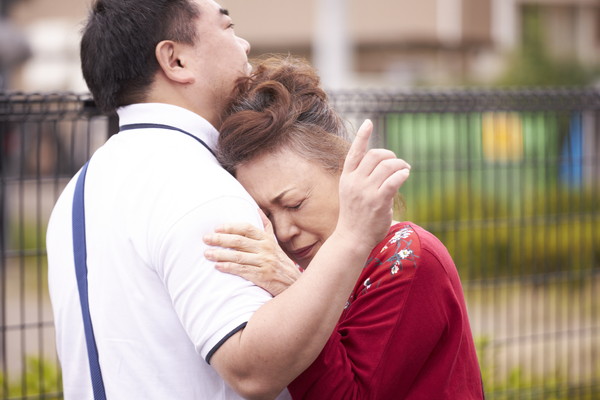Director – Kotaro Wajima – 2021 – Japan – 77m
*****
New next door neighbours pose challenges for a man with learning difficulties and his carer mother – plays UK cinemas in the Japan Foundation Touring Film Programme 2022 between Friday, 4th February and Thursday, 31st March
Chu-san (Muga Tsukaji) gets up with his alarm, saying “it’s 6.45”. He folds up his bedding into a neat pile, starts to unbutton his pyjamas. By the time he’s saying, “it’s 6.56”, he’s heading for the loo. Everything runs on a rigid time grid. There’s only two minutes for his mother Tamako (Mariko Kaga) to shave him between 7.01 and 7.03; if it doesn’t get done, she has to stop. At breakfast, she tells him, “chew 30 times.”
Outside their modest house and courtyard, an Ume tree overhangs the fence, a public hazard. One of the removal men helping the new neighbours the Satomuras move in next door bangs his head and drops a box of things, out from which, unnoticed, falls a child’s ball. The husband Shigeru (Ikkei Watanabe) tells his wife Eiko (Yoko Moriguchi) that she – or he – needs to talk to the neighbours about the tree.
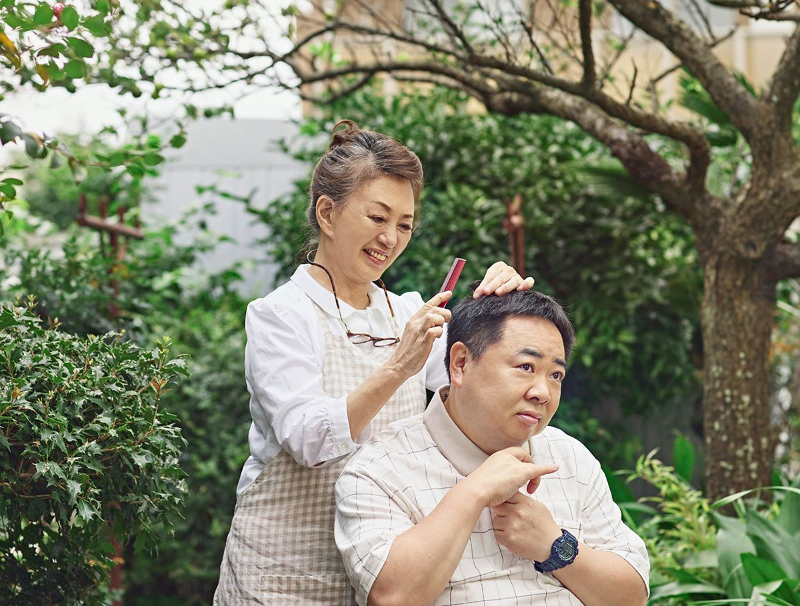
Later, Shigeru beats Chu-san after finding him in their house. But then their young son Sota (Taiyo Saito) notices the ball coming down the stairs. And from that point, he and the son next door are destined to be friends.
Tamako agrees to have the tree pruned, not least because if she does so it will bear fruit, however when her son stays home to watch the pruning with her, it becomes clear that Chu-san feels the pain of every tiny sapling clipped and it’s not long before his mother has instructed the tree man to stop.
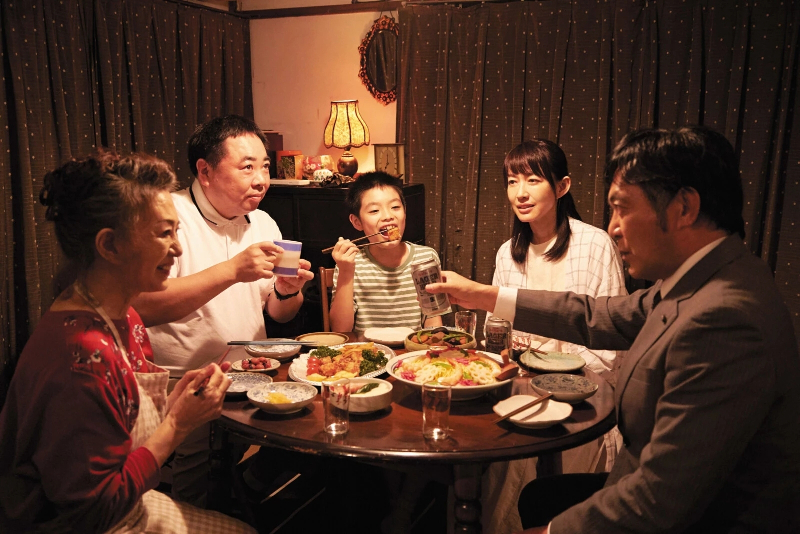
Further intrigues include Tamako’s attempt to get her son to move into outside accommodation, specifically a group home for vulnerable people. Here, his like clockwork scheduling quickly sets him against Tetsu who gets to the bathroom before him and complains when Chu-san starts eating the evening meal before everyone’s been given the go-ahead.
A run in with the lady proprietor of the local riding school reaches crisis point when Sota takes Chu-san on an impromtu nighttime visit to the school’s stables, a delightful adventure which goes horribly wrong when the pair are spotted by a night watchman. This fuels the riding school’s campaign against having the Group Home in the local area against the wishes of many residents.
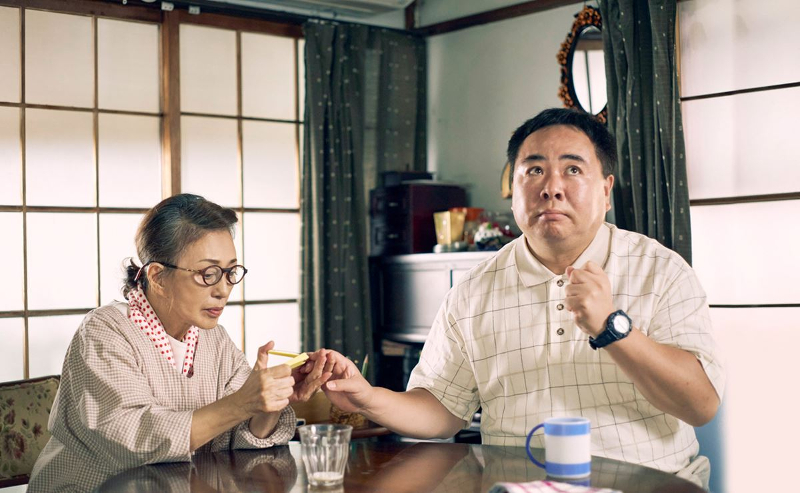
All national cultures have their own peculiarities, and this film does a fantastic job of foregrounding a few Japanese ones. Rubbish is taken to local recycling points, and it must be sorted correctly beforehand. If it’s not burnable, it shouldn’t be in there. The fastidious Chu-san takes Shigeru’s bag, bangs it on the ground and gets him to remove three non-burnable tin cans.
Then, there seems to be an almost pathological need to apologise for causing wrongdoing. This sits alongside the constant bowing to others as a mark of respect. In the West, we have ideals based on Christian concepts of repentance and atonement to right wrongs. The Japanese way of dealing with all this seems to be about the group, of not having pulled one’s weight or letting other people down, which must be put right. This comes into play after the riding school night incident, where the hapless Chu-san is caught while the fleeing Sota isn’t, leaving the latter to grapple with deep feelings of guilt and responsibility for the incident, which in turn pull in his parents who feel obliged to apologise to Chu-san and his mother.
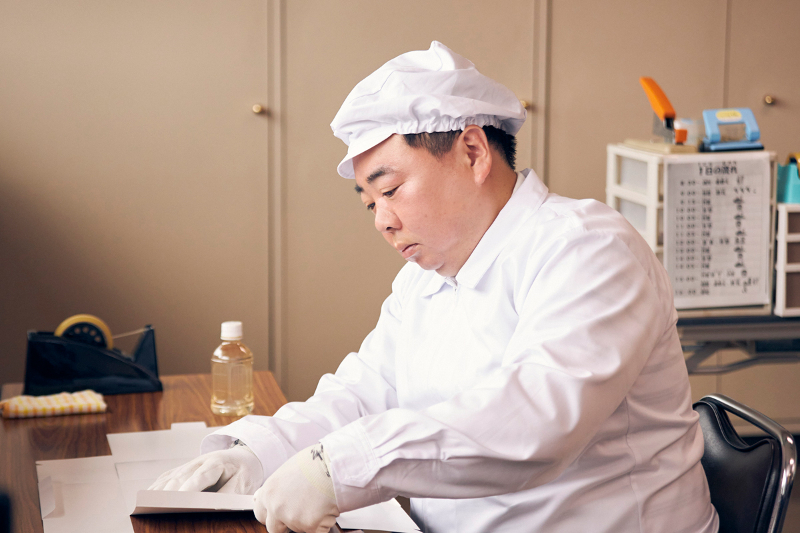
Equally fascinating is the difference between Tamako directly looking after Chu-san when he’s at home, the way he copes with menial production line work (short answer: rigorous and like clockwork) and derives dignity from the process and how, once he’s moved house, she is almost incapable of functioning on her own without him to look after. Which is strange because you think of a person with learning difficulties as ‘disabled’ and their carers as ‘able-bodied’, but the reality on the ground is far less cut-and-dried.
In short, this deceptively simple effort covers a lot of ground in a number of areas – disability, community, quality of life – without ever being didactic about it. These two, very different neighbouring households are great creations, and one can imagine them returning for either a further film, if writer-director Wajima can come up with the right situation or storyline, or possibly even a TV series. This nevertheless remains a fine little film in its own right, with a particularly striking performance from Tsukaji as the grown son in the centre of the narrative.
The Lone Ume Tree plays UK cinemas in the Japan Foundation Touring Film Programme 2022 between Friday, 4th February and Thursday, 31st March.
Trailer (Japanese only, no subs):
